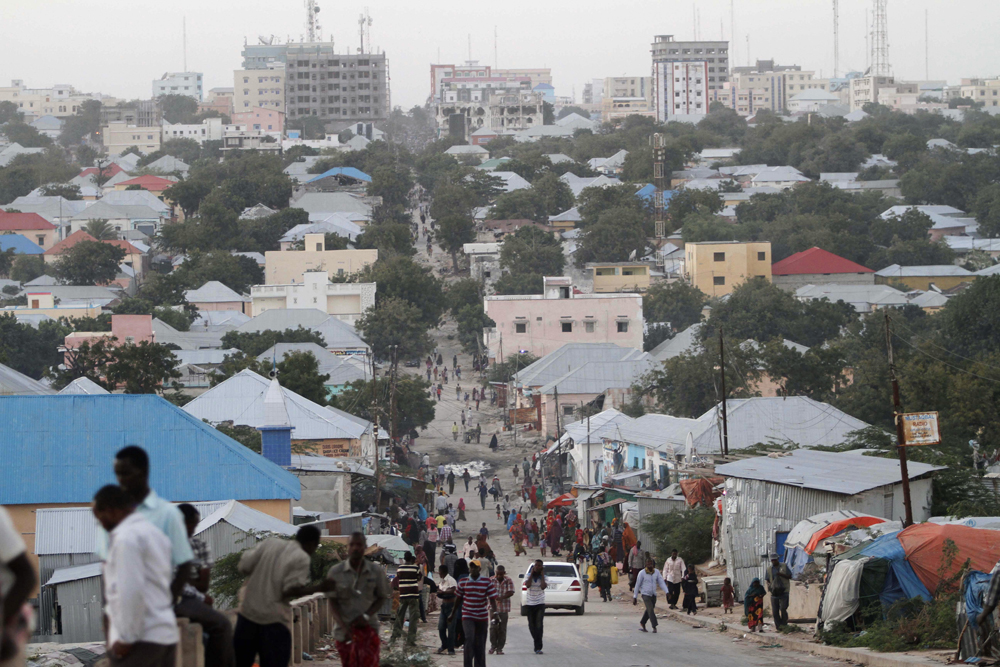Mogadishu mayor says his administration will support children with special needs

The mayor Mogadishu, Yussuf Hussein Jim’aale who on Friday visited Alnur School for the Blind in Mogadishu has said that his administration will give priority to the children with special needs in the horn of Africa country.
“My administration will work hand in hand with the schools such Al-Nur and will make sure that the children with visual impaired to get education to support their lives,” said Jim’aale.
Jim’aale has thanked Hormuud Telecommunications Company which set up the school which provides free lifeline education that would otherwise not be possible to blind children.
From 2012 Hormuud Telecommunication Foundation took the responsibility of funding all the expenses of the school.
Al-Nur School, located in Hordan district has illuminating the lives of the blind children in a quest for a brighter future.
The mixed school, which boasts a boarding section, presently has 84 students – 27 girls and 57 boys – with the boarding section only open to 30 boys which means the other 54 students are day scholars.
There are no readily available statistics about the number of disabled persons in Somalia. According to the World Health Organization (WHO) 10 percent of the world’s population is composed of disabled people.
A 2011 report titled ‘Disability Rights in Somalia’ released by the Swedish International Development Cooperation Agency (SIDA) notes that the number of disabilities in Somalia increases by 20 people daily, and, about 12 to 15 percent of the population is disabled. Somalia has an estimated population of about 12.5m.
Persons with disabilities in Somalia as in many other countries, face numerous challenges that result in their exclusion from the mainstream of society, making it difficult for them to access their fundamental social, political and economic rights.
Many make their way through life under difficult circumstances.
For them, life is a daily struggle to survive, whether they live in urban centers or in rural areas.
They are largely excluded from essential services and lack protection of the family and community, and often at risk of exploitation and abuse.
Factors contributing to this pathetic situation are many and varied but include poverty, unemployment and social exclusion among others.